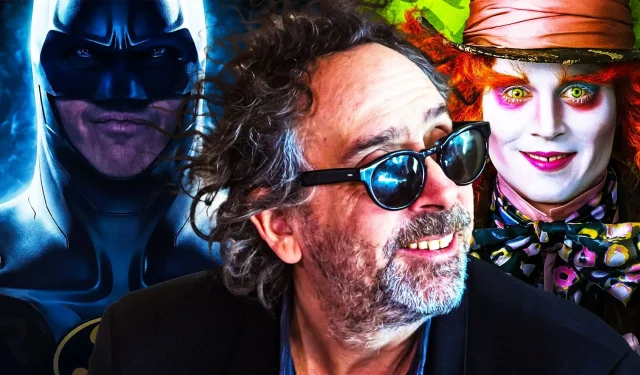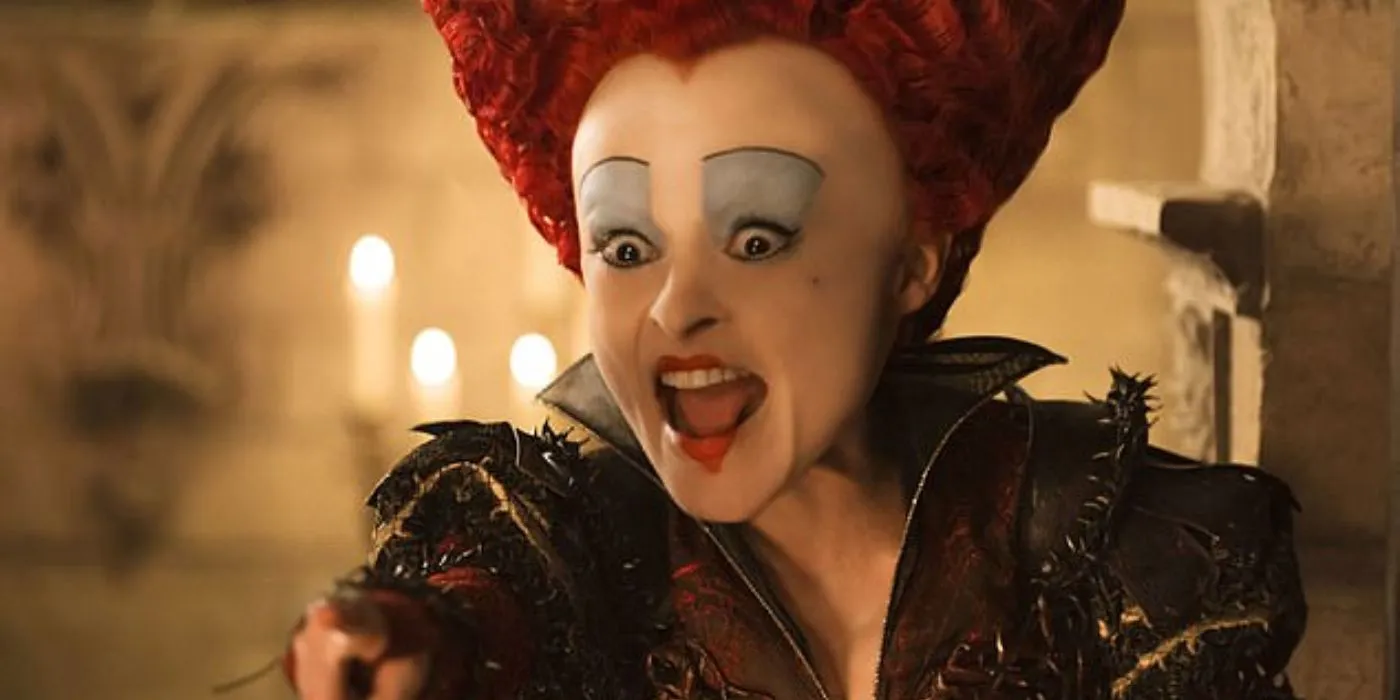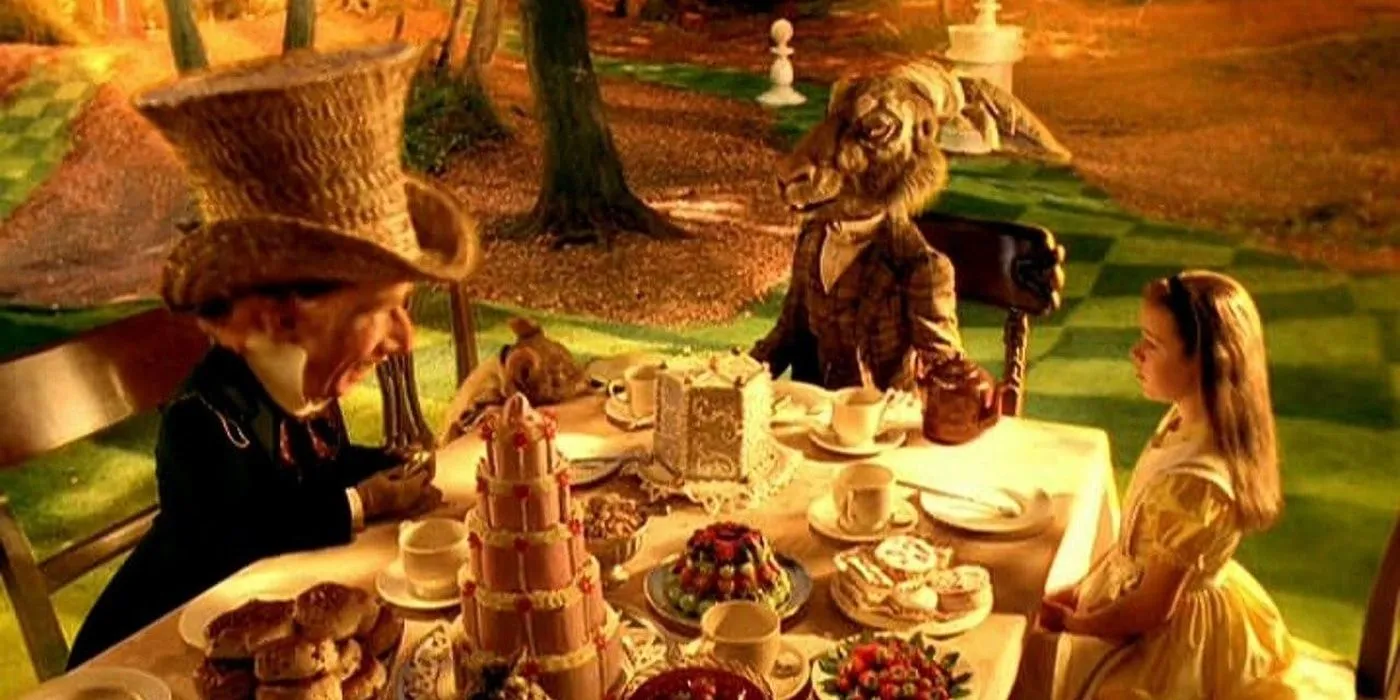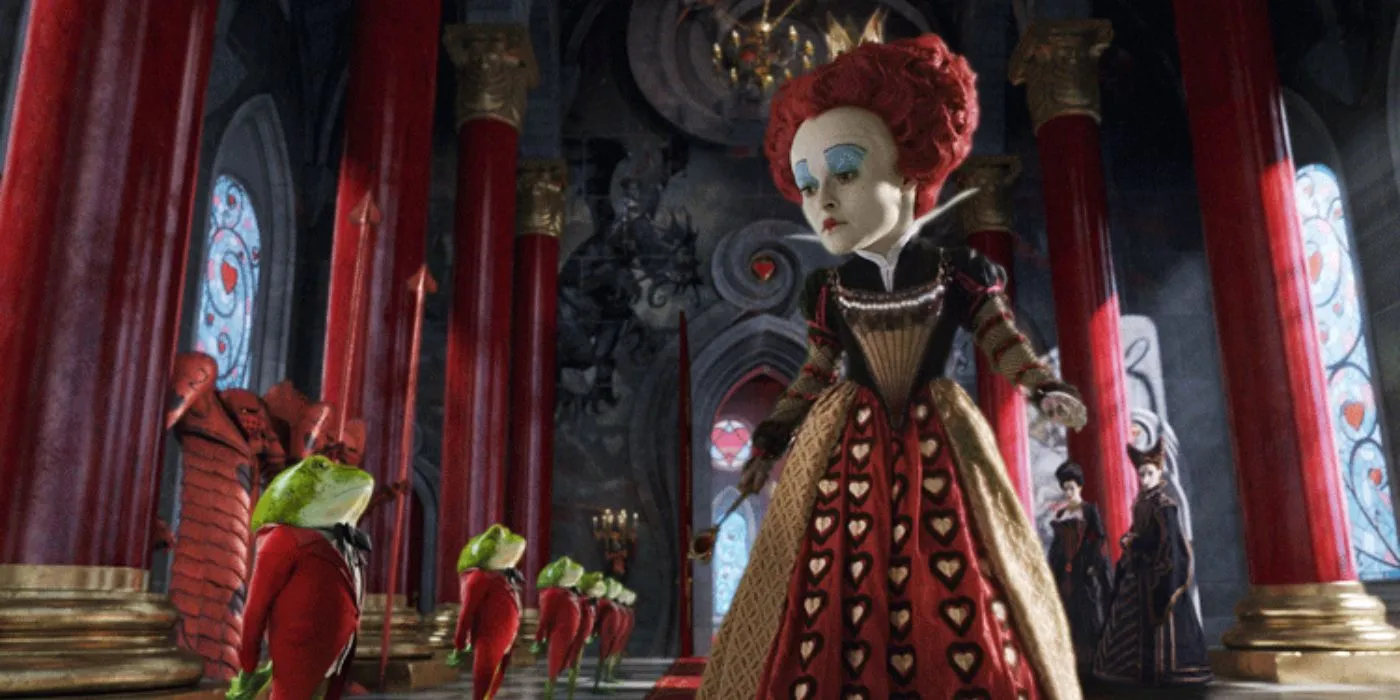
Tim Burton has enjoyed a lengthy career marked by unique storytelling and imaginative visuals. While his films have often achieved remarkable box office success, few have managed to maintain enduring popularity compared to a lesser-known 1999 made-for-TV adaptation of Alice in Wonderland. Burton’s cinematic journey reached its zenith in the late 1980s and early 1990s with iconic works like Edward Scissorhands, Beetlejuice, and The Nightmare Before Christmas. However, his more recent endeavors have presented a mixed bag of critical and commercial outcomes. Highlights include 2003’s Big Fish, while disappointments like 2012’s Dark Shadows reflect the unpredictable nature of his recent projects.
Despite the ups and downs, Burton’s fortunes have rebounded recently. His return to the beloved character in Beetlejuice 2 has garnered $451 million against a $100 million budget, while the Netflix series Wednesday has become a phenomenon, with Season 2 eagerly anticipated. Nonetheless, no recent release has eclipsed the staggering success of his greatest financial triumph.
Alice in Wonderland Remains Tim Burton’s Top Earning Film
An Unmatched Commercial Achievement

Burton’s 2010 adaptation of Alice in Wonderland stands tall as the pinnacle of his box office achievements, grossing an impressive $1.025 billion worldwide. Starring renowned actors such as Mia Wasikowska, Johnny Depp, and Helena Bonham Carter, the film was a monumental financial success despite its $200 million production budget. In stark contrast, Burton’s second-greatest earning film, 2005’s Charlie and the Chocolate Factory, managed to collect only $475 million.
While the reception of Alice in Wonderland on platforms like Rotten Tomatoes was less than favorable, it resonated culturally at the time of release. The combination of Burton’s association with Disney, their aggressive marketing strategies, and the nostalgia surrounding Lewis Carroll’s work drew audiences in droves. However, the 2016 sequel, Alice Through the Looking Glass, suffered at the box office without Burton’s touch, earning merely under $300 million. Ultimately, while commercially successful, Burton’s version of Alice has not left a lasting cultural legacy, which contrasts with its 1999 predecessor.
The Significance of NBC’s 1999 Alice in Wonderland
A Star-Studded Cast

Eleven years prior to Burton’s ambitious take, NBC produced a *made-for-television** adaptation of Alice in Wonderland that captivated audiences. The project, with a budget of $21 million—equivalent to nearly $40 million today—was a significant undertaking for television before the era of premium series. Directed by Nick Willing, the film showcased a formidable cast that included A-list stars and seasoned actors.
| Alice in Wonderland Actor | Character |
|---|---|
| Tina Majorino | Alice |
| Whoopi Goldberg | Cheshire Cat |
| Robbie Coltrane | Ned Tweedledum |
| George Wendt | Fred Tweedledee |
| Ben Kingsley | Major Caterpillar |
| Christopher Lloyd | White Knight |
| Miranda Richardson | Queen of Hearts |
| Martin Short | Mad Hatter |
| Gene Wilder | Mock Turtle |
| Jason Flemyng | Sir Jack, Knave of Hearts |
| Simon Russell Beale | King Cedric of Hearts |
| Ken Dodd | Mr. Mouse |
| Peter Ustinov | Walrus |
| Liz Smith | Miss Lory |
| Elizabeth Spriggs | Duchess |
This remarkable cast added depth to the retelling of the beloved tale, creatively interweaving segments of Through the Looking Glass. Employing a blend of live-action and puppetry through Jim Henson’s Creature Shop, the story depicted Alice’s adventure as not merely a dream but as a vivid expression of her performance anxiety, enriching her character journey.
A Timeless Quality: NBC’s Version Flourishes Over Time
Burton’s Aesthetic Choices Led to a Darker Tone

In retrospect, NBC’s 1999 adaptation has withstood the test of time more favorably than Burton’s rendition. Although Burton’s film showcased captivating visuals, its Gothic undertones overshadowed the whimsical spirit of Lewis Carroll’s tale. NBC’s version more authentically captures the light-hearted absurdity that is inherent in the source material while shifting away from the oppressive elements found in Burton’s narrative.
Moreover, the tone in Burton’s adaptation feels significantly more somber, presenting a version of Alice that lacks personal growth compared to her NBC counterpart. The 2010 film grapples with somber themes, including depression and societal pressures, introducing a mature Alice marked by vulnerability. In contrast, NBC’s portrayal preserves the innocence and wonder of a child lost in a fantastical realm. Ironically, despite being one of his most successful films, Tim Burton might have benefited from studying the 1999 version before tackling his own interpretation of Alice in Wonderland.




Leave a Reply